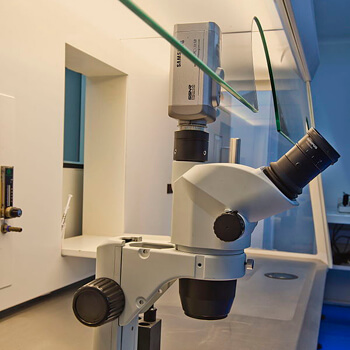The Surrogacy Contract
The surrogacy agreement is both the foundation of the surrogacy process and is vital to ensuring expectations are met and that both intended parents and surrogates are protected from potential risks and liabilities. Every surrogacy agreement is tailored to meet the needs and expectations of both the surrogate and intended parents. It is vital that all parties involved understand both the provisions and exclusions contained within the surrogacy agreement to prevent potential disagreements, complications and disputes throughout the surrogacy journey. With a comprehensive agreement that outlines both the rights of the surrogate and the intended parents as well as the risks and responsibilities of all parties involved, potential disputes and miscommunications are limited; This helps to protect everyone in the surrogacy process.
There are certain topics that are necessary to discuss and are essential in any surrogacy contract:
Medical
A contract should identify medical providers as well as your IVF clinic, reproductive physician and obstetrician. The surrogate has the right to choose the obstetrician that she is comfortable with and this should be clearly identified within the surrogacy agreement, a provision that the intended parents will have the opportunity to approve of the chosen physician is often included but the final decision resides with the surrogate.
Legal
Each state has laws dictating the surrogacy process; A contract should include what the laws of the state are, what procedures need to be followed as well as the legal responsibilities for all parties involved. This section could include anything from legal proceedings that enable validation of the surrogacy process to who is required to attend the court proceeding for the pre-birth order to ensure legal parentage to the intended parents on the birth certificate.
General Provisions
Each state has laws dictating the surrogacy process; A contract should include what the laws of the state are, what procedures need to be followed as well as the legal responsibilities for all parties involved. This section could include anything from legal proceedings that enable validation of the surrogacy process to who is required to attend the court proceeding for the pre-birth order to ensure legal parentage to the intended parents on the birth certificate.
The surrogacy agreement will also outline the number of embryos the surrogate is willing to transfer per cycle, this is usually limited to two or three, but can be more or less based on the physician’s advice that is based on both the quality of the embryo as well as the age of the embryos. Healthier embryos tend to be transferred one at a time unless an attempt for multiple birth is both desired and agreed upon.
Invasive Procedures
Surrogacy agreements also outline issues that may arise with regards to invasive procedures such as termination, selective reduction and other difficult decisions that parties may have to address and attend to throughout the surrogacy process. This is an essential part of every contract to ensure that all parties are in agreeance and comfortable with the possible decisions that may need to be made.
Compensation
It is important that compensation be addressed through the surrogacy contract to ensure that the cost and responsibility for pregnancy falls on the intended parents and that the surrogate is fairly compensated for her time and commitment to the surrogacy process as well as compensated in a timely and fair schedule.
Risks and Liabilities
As with any pregnancy there are potential risks and complications, the surrogacy agreement should address these risks and complications and outline what if any decisions may need to be made and who is responsible for making them. A proper contract will also include extra compensation amounts the surrogate may receive in the case of invasive procedures, carrying multiples, bedrest, or potential loss that could occur.
Responsibilities
The contract will outline the surrogate’s responsibilities throughout the pregnancy as well as the intended parents’ responsibilities that they are required to meet throughout the process.
Drafting and Negotiating the Surrogacy Contract
The surrogacy contract is a collaborative effort between the attorneys, surrogate and intended parents. In most cases the initial draft is created and presented by the intended parents and their attorney for review by the surrogate and her attorney. It is important that the surrogate ensures that her requests and interests are heard and considered so the necessary changes are made to the agreement. The contract can go through many revisions before all parties are in agreement and willing to sign, this is normal and should not be seen as discouraging. Don’t be afraid to have your concerns and desires heard and represented in the contract.
It is vital that both the surrogate and the intended parents have their own attorneys when negotiating the contract; This helps to ensure a fair and balanced contract, reduce stress from both parties that could potentially damage the relationship between the surrogate and intended parents and also helps to ensure that the contract is in the legal language that is required through the court process.
The contract needs to be negotiated, signed and completed prior to medical procedures being done; This is a requirement with many fertility clinics to ensure that all parties are protected.
The Dangers of Independent Contracts
It is never advisable to attempt such a contract without the help of attorneys, while there are many templates available online that some feel would suffice. These templates often miss some of the vital points that should be contained within the surrogacy agreement and do not cover all the possible outcomes, variables, circumstances, and needs that could affect the parties involved. It is never advisable to enter into such a contract without proper legal counsel on both sides of the agreement; doing so could lead to extreme legal consequences and disputes between the parties involved. Without a proper contract, there really is no legal protection in place for the surrogate, the intended parents, or the child to be.



















